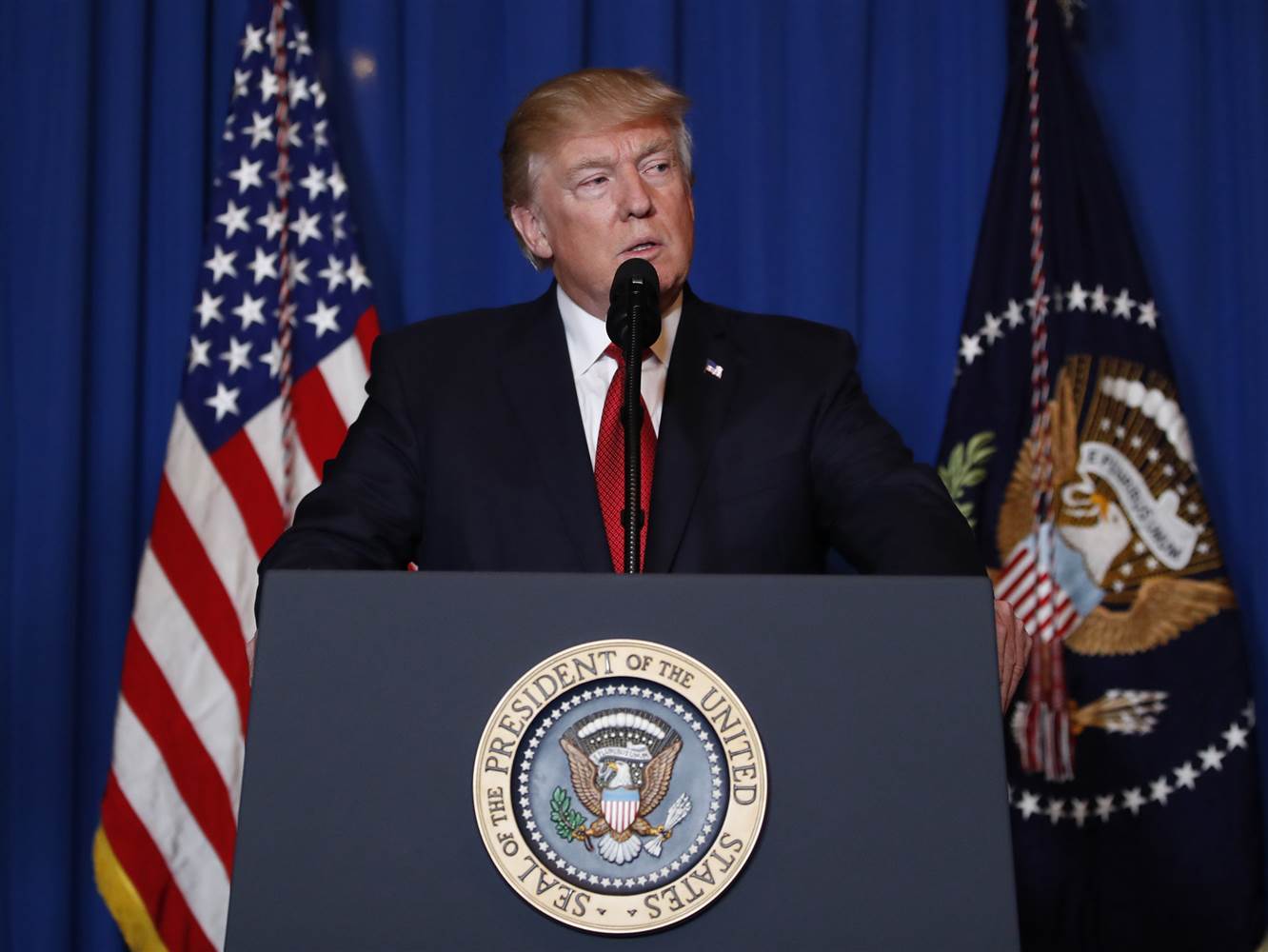Is the Trump administration shifting toward a more globalist foreign policy?
WASHINGTON- President Donald Trump’s America First campaign slogan ignited his base but many of the new Commander-In-Chief’s strongest supporters are questioning whether last week’s Syria strike foreshadows a shift to a more globalist foreign policy strategy.
Recent troubles began with Trump’s demotion of America First cheerleader White House Chief Strategist Steven Bannon from the National Security team. That decision set off a firestorm among conservatives such as Ann Coulter who voted for Trump because he promised to fix domestic problems as opposed to being the world’s police officer.
.@DRUDGE: "BANNON LOSES POWER … RICK PERRY TO FILL VOID" What is the problem with hiring smart people? Wouldn't that make things easier?
— Ann Coulter (@AnnCoulter) April 5, 2017
Trump campaigned on not getting involved in Mideast. Said it always helps our enemies & creates more refugees. Then he saw a picture on TV.
— Ann Coulter (@AnnCoulter) April 7, 2017
Some scholars have argued that the Syria strike was hypocritical.
“The attack on Syria was a complete contradiction to Trump’s general non-interventionist policy and conflicts even more with his fervent opposition to any direct action in Syria during Obama’s presidency,” said Middle East scholar and former United States Institute of Peace board member Daniel Pipes.
U.S. Navy ships off the coast of the Mediterranean Sea last week fired 59 Tomahawk cruise missiles at Shayrat Airfield in western-central Syria. The airfield stored chemical weapons that were used in a recent attack that left about 100 civilians dead.
Nine were killed in the U.S. airstrike and the Trump administration has warned Syrian dictator Bashar-al-Assad that further use of chemical weapons on civilians may result in additional airstrikes.
Some have argued that the Syria strike is consistent with the America First narrative.
“Just as 59 cruise missiles doesn’t constitute a strategy when it comes to Syria, President Trump’s actions don’t constitute a policy shift away from his America First foreign policy ideas,” said Harry Kazianis, who is director of Defense Studies at the Center for the National Interest in Washington, D.C.
Kazianis said the Trump administration is the still developing a foreign policy strategy.
“We have to keep in mind that the administration is still very much in early days. They have not completely staffed up many key positions in the State and Defense departments. They are very much still conceptualizing what their foreign policy strategy is when it comes to specifics and when it comes to certain regions,” he explained.
Former Maryland Gov. Robert L. Ehrlich Jr. (R) said U.S. interests were threatened by Assad’s possession and use of chemical weapons and that Trump put “America First” when he ordered the attack.
“America First means America safe first. Sarin gas does not equal America safe,” Ehrlich explained.
He also said it is too early to assess the veracity of recent media reports suggesting the declining influence of the president’s America First advisers such as Bannon.
“I’m always leery of drawing short-term conclusions.”
Trump has taken other measures on the international stage that suggest a more globalist foreign policy agenda.
On Thursday the United States dropped its largest and most potent non-nuclear bomb on an ISIS stronghold in Afghanistan.
Some foreign policy strategists have argued that Trump made that decision in order to send a signal to rogue states such as North Korea, which has threatened to test a nuclear missile on April 15 in honor of the birthday of the regime’s founder Kim il-Sung that the United States will not tolerate threats to world peace.
Recent media reports have suggested that the Pentagon is laying the groundwork for a cruise missile strike against North Korean missile sites should the test go forward.
U.S. warships are said to be stationed within striking distance of North Korean launch sites and on Friday morning a spokesperson for the regime said that nuclear war may be imminent.
Trump last week warned Chinese premier Xi Jinping that if Beijing does not use its economic leverage to force Pyongyang into giving up its nuclear weapons program that the U.S. may be forced to take unilateral action.
North Korea is a state sponsor of international terrorism and along with Russia has provided chemical weapons to Syria, according to former CIA Director James Woolsey.
North Korea also was involved in the construction of a Syrian nuclear reactor that was destroyed in a 2007 Israeli airstrike.
Syria denied that the reactor was producing weapons-grade uranium.
The International Atomic Energy Agency disagreed.
This article was first published by Talk Media News. It is republished with permission.

Bryan is an award-winning political journalist who has extensive experience covering Congress and Maryland state government. His work includes coverage of the election of Donald Trump, the confirmation hearings of Supreme Court Justice Brett Kavanaugh and attorneys general William Barr and Jeff Sessions-as well as that of the Maryland General Assembly, Gov. Larry Hogan, and the COVID-19 pandemic.
Bryan has broken stories involving athletic and sexual assault scandals with the Baltimore Post-Examiner.
His original UMBC investigation gained international attention, was featured in People Magazine and he was interviewed by ABC’s “Good Morning America” and local radio stations. Bryan broke subsequent stories documenting UMBC’s omission of a sexual assault on their daily crime log and a federal investigation related to the university’s handling of an alleged sexual assault.

